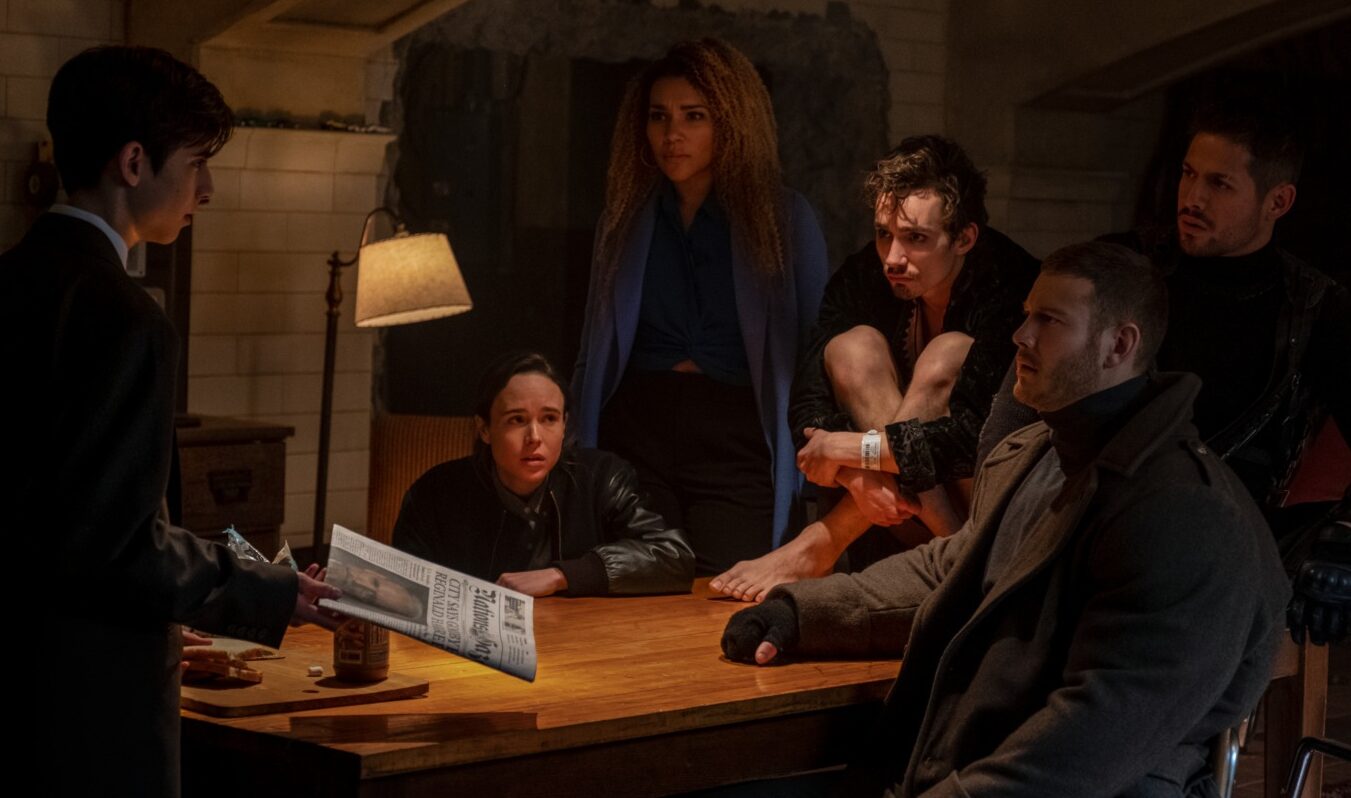Are Superhero shows taking over?
The internet (or at least the small corner of it that I occupy) exploded when the release date of The Umbrella Academy season 3 was finally released, after months of teasing. The show, (which is based on Gerard Way’s comic series), achieved phenomenal success in 2019 when Netflix reported that 45 million households had watched season one during its first month of release. It surged in popularity with its second season, making it the most popular Netflix original since The Witcher, and more than 3 billion minutes were watched the week after it was released: although, full disclosure, a few billion of those might have just been me…
…the show was able to capture audiences’ attention over the course of several weeks, breaking the previous trend of ‘binge’ TV shows…
However, the Hargreeves aren’t the only superheroes that are commanding the silver screen. Every platform, from Disney+ to Amazon Prime, now boasts its own take on the genre. In 2021, the Marvel Cinematic Universe made its television debut with WandaVision, which dominated social media (and our search traffic) during the pandemic. It’s notable that the show was able to capture audiences’ attention over the course of several weeks, breaking the previous trend of ‘binge’ TV shows, by releasing episodes over a long period of time.
This formula for success has since been adopted by other shows, such as Euphoria, and has been proven to keep shows trending online for several weeks, rather soaring in popularity and then disappearing from the Internet’s radar over the course of a week: for example, Cobra Kai peaked in popularity upon release and then immediately vanished, while WandaVision’s viewership continued to grow over time.
While it’s true that most streaming platforms now have a superhero show of their own, this doesn’t mean that other shows are being shafted.
While superheroes were previously seen as movie material, the success of their tv shows is only growing, with more releases coming in 2022. Oscar Isaac will be characterising the hero MoonKnight at the end of March, the highly-rated Amazon Prime series The Boys will be returning for an awaited third season, and Ms Marvel will be getting her own TV show, no doubt capitalising on the success of fellow ‘young avenger’ Kate Bishop in Hawkeye.
For fans of The Umbrella Academy, it’s predicted that Doom Patrol will also return for a fourth season this year, another quirky comic series that creator Gerard Way has worked on. But does the popularity of superhero TV shows suggest the death of television? Not necessarily. While it’s true that most streaming platforms now have a superhero show of their own, this doesn’t mean that other shows are being shafted. Some of the most-awaited shows coming this year won’t be riding the superhero hype train, including Bridgerton season 2, the return of Russian Doll, and another season of Gentleman Jack. On top of that, some of the most popular shows we’ve seen so far this year such as Euphoria and Station Eleven, haven’t been overshadowed by superheroes.
We’re also currently in a golden age of television…
There’s no sign that the rise in TV shows will lead to a decline in superhero movies either. The Batman has been one of the most successful and well-received DC movies in a long time. Superhero TV shows work so well because they stick closer to the format of the original material— comics are serialised, which means they fit the structure of a TV show better than a movie. For example, The Umbrella Academy currently has 3 books, which are composed of 6 individual comics, so it makes more sense to adapt the story to TV than try to cram the story into a movie.
Similarly, the new Hawkeye series on Disney+ is based on the most recent run of comics, which is more character-focused and brings over-the-top superhero narratives back down to earth—therefore, it works much better as a show than a big-budget movie. We’re also currently in a golden age of television, partially due to the pandemic and the popularity of streaming platforms, so it makes sense to adapt stories that are usually seen on the big screen to bigger TV audiences.
…it makes these characters and stories more accessible to larger audiences…
It seems like major studios, such as Marvel, have finally realised that they can capitalise on the growing popularity of TV, as well as the film industry. I think the growing popularity of superhero TV shows is a good thing. More often than not, it makes these characters and stories more accessible to larger audiences, especially since many of us have grown tired of Marvel’s overblown movies.
Shows like Umbrella Academy, Doom Patrol, and even WandaVision break down conventional superhero narratives and make them more enjoyable for people that don’t typically enjoy those types of stories. These shows contribute to the wider array of programmes on offer, without taking away from the success of blockbuster superhero movies, and continue to be incredibly popular with audiences.


Comments